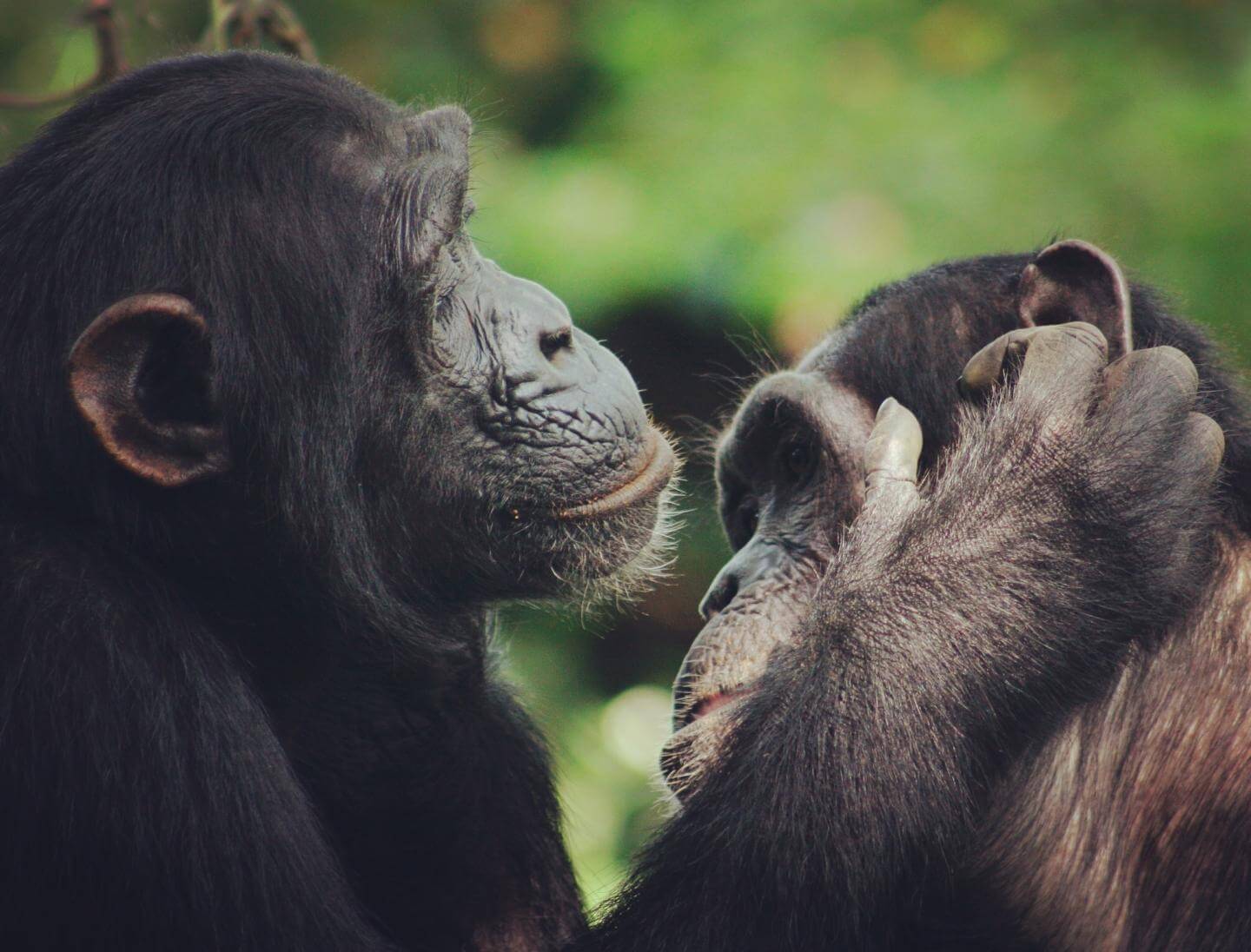DURHAM, N.C. — If you ever felt like all your bosses are jerks, there’s an evolutionary reason for that. Acting like a cut-throat bully has been one way to get ahead in life, a recipe for success our closely-related ancestors (primates) have followed for years. So, if acting villainous gives you more power and success, why haven’t chimps — and by extension, people — evolved to all act like bullies?
Aggression, greed, and irritability keep male chimps high up the social ladder and give them more benefits, such as getting more chances to mate and have babies. By studying the personalities of 28 chimps in Tanzania, an international team has discovered that being aggressive has its trade-offs.
Chimpanzees, like humans, have their own distinct personalities. Some are easy-going while others like to pick fights with everyone. The study authors from Duke University and the University of Edinburgh took to the field to study those personality traits in action and how it helped shape social statuses in chimp society.
One year of watching male chimps showed that those who displayed high dominance and low conscientiousness often did better in life than others. They were able to mate more and pass their genes on to the next generation. Researchers explain that one theory about this evolutionary puzzle is that different personality traits help at different points in life.

For example, aggression may help a young male snag a female companion, but it wouldn’t do much good with raising them. The opposite might also ring true. Putting on a tough guy act when young might get chimps into trouble with older primates. When they’re older, this aggressive nature could make them look more like a leader or as other figures of authority.
“Think of the personality traits that lead some people to peak in high school versus later in life,” says Alexander Weiss, a comparative psychologist at The University of Edinburgh, in a media release. “It’s a trade-off.”
The new study debunks this long-standing theory. When going through 37 years of primate data from Jane Goodall, they found that aggression and dominance had an association with high rank and reproductive success throughout life.
Instead, the diversity in personalities may have evolved as a way of responding to certain environmental or social conditions. Traits like acting affectionate, may have at certain times been more beneficial to males and costly to females. If this were true, genes expressing those traits would stay in the gene pool and be passed down to future generations.
The study is published in the journal PeerJ.
You might also be interested in:
- Good deeds cure bad seeds: Study sheds light on how to change dark personalities
- Strongest, most successful business leaders demonstrate this personality trait
- Study: Teens who bully engage in sexual behavior more often


In my long career I have observed that bullies can only make small advances, unless they start from a high position.
Long term success requires allies — it’s tough going when everyone wants to do you in.
Being a jerk only works for the rich and powerful
I guess bullying does work, look at Donald Trump’s success.